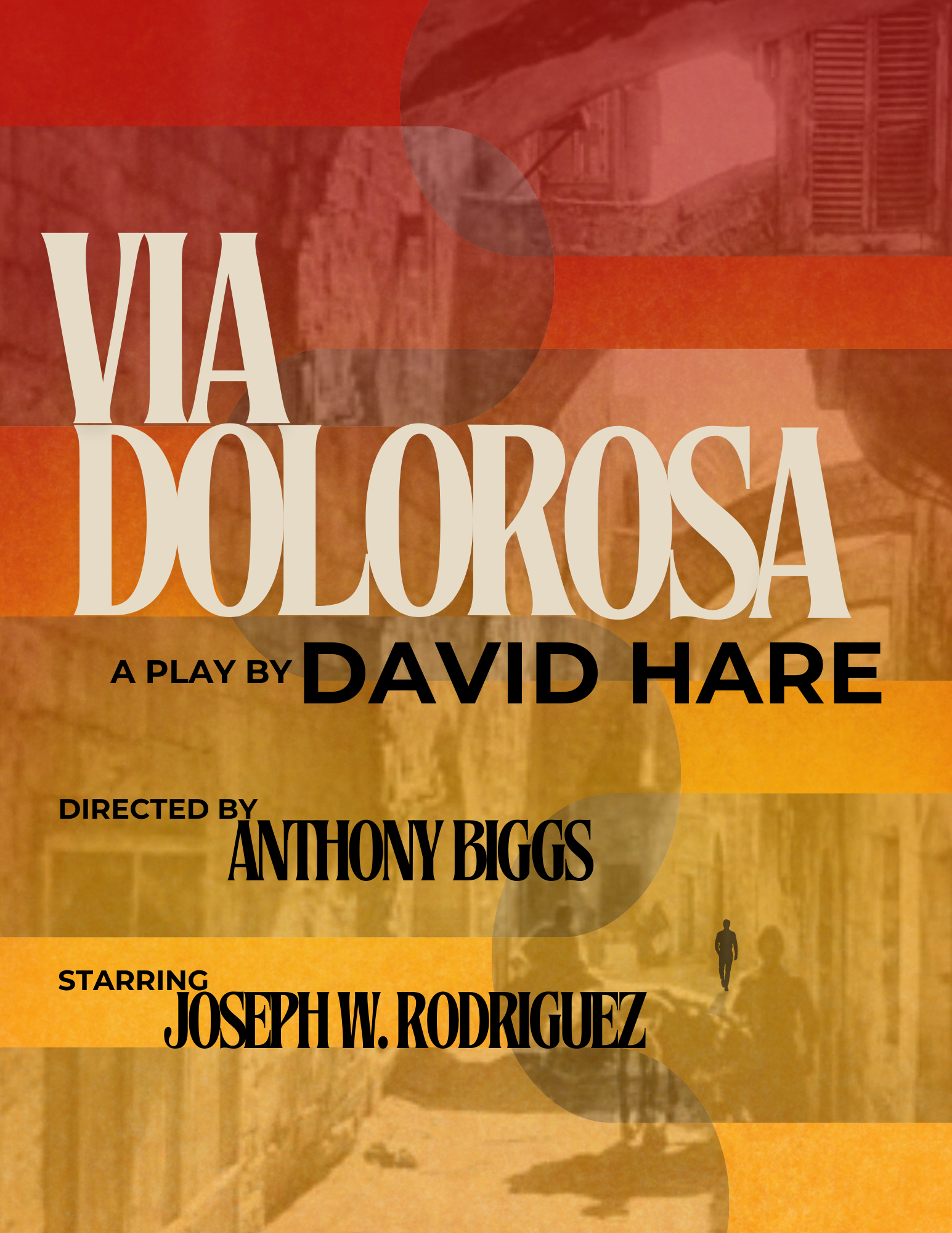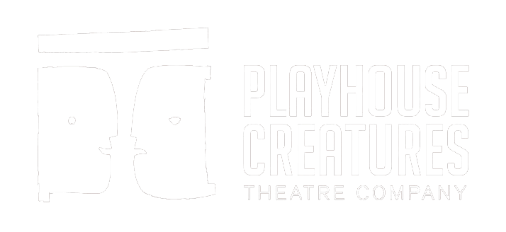



COLLABORATOR SPOTLIGHT:
Anthony Biggs – Director, Arts Advocate, Collaborator
“A Shared Ideology”
What makes for a good transatlantic collaboration? Does this depend on a shared vision? A passion for new work? A commitment to bringing theatre to new audiences? A love of travel and a zest for crossing borders and boundaries?
In the case of Anthony Biggs, Artistic Director of London’s WELL-PLAYED theatre collective and PCTC’s British collaborator par excellence, the answer is all of the above, as well as a dedication to community arts, innovative programming, non-diva working methods and what he describes as “a shared ideology.” This, along with the sheer enjoyment of working with a kindred spirit, supports an international creative connection that just keeps growing.
From coffee to collaboration
Two years ago, legendary British theatre veteran David Gothard (whom Biggs describes as a “walking catalyst”) met up with PCTC’s Artistic Director, Joseph W. Rodriguez, who was visiting London from New York. Gothard insisted that Rodriguez meet Biggs before returning home. He was sure they would have lots to say to each other. Turns out he was, as ever, on the money!
Biggs came to the table with a background in acting and educational theatre. As a director, he channelled a commitment to theatre as a force for social change into a successful commercial career in a range of ventures, from classic revivals to exciting new works, for several small-but-mighty London venues, from the Jermyn Street Theatre to West London’s Playground Theatre.
Rodriguez, a classically-trained actor with a taste for iconic American plays, old and new, brought an impressive array of commercial credits, and over a decade of experience producing and performing at his New York-based theatre, Playhouse Creatures Theatre Company, where he also led community arts projects for Nazareth Housing and LGBTQ youth at the Harvey Milk School.
The meeting for coffee was just a beginning. Biggs and Rodriguez found they shared a love of Tennessee Williams, a penchant for programming that mixed genres and confounded expectations, and a dedication to mentoring emerging talent. Most important of all, each felt at home in the uncharted territory where innovative, risk-taking professional theatre meets community arts. As Gothard predicted, the exchange did not end there.
A Growing Partnership
In 2023, Biggs invited Rodriguez to London to co-host a reading of GREENSBORO: A REQUIEM, Emily Mann’s searing exploration of racial tension and community healing in North Carolina. The energy and excitement generated from this event encouraged the two to consider a radical notion. Why not develop programming to connect contemporary American playwrights, British theatre-makers and residents of London’s least affluent neighborhoods, bringing together the two constituencies they cared most about – fellow artists and groups of people traditionally limited from access to the arts?
This idea spawned several projects, from workshops and readings on American experimental drama of the 20th century to large-scale community readings of contemporary work. In 2023, Biggs invited L.A. playwright (and PCTC associate) Angela J. Davis to the Playground Theatre for a reading of her new play GRISWOLD and a discussion of reproductive rights in the US and Britain. The next year, on the eve of her 2024 Dramatists Guild Award for lifetime achievement, Emily Mann joined Biggs, Rodriguez and their creative team at the Chelsea Theatre, London for an LGBTQ+ fundraiser and community reading of her ground-breaking testimonial drama, EXECUTION OF JUSTICE.
These initiatives brought playwrights from the US into direct conversation with seasoned theatre professionals, emerging artists, activists, journalists and local London residents in venues from community centres to the Royal Court. It also encouraged Biggs and Rodriguez to take their alliance to the next level.
In 2024, Biggs travelled to New York to direct Rodriguez in a revival of David Hare’s solo piece VIA DOLOROSA (an extended meditation on Israel and Palestine) for an immersive production at Manhattan’s Casa Clara. Their deepening collaboration continued with the “Beautiful Resistance” virtual fundraiser, bringing together artists from the US, Canada, South America and Canada in support of children’s theatre programming in the West Bank, and plans to bring VIA DOLOROSA to London for a limited run in the New Year.
An integrated approach
Clearly, this collaboration is thriving. When asked why it is so successful, Biggs contends that it goes beyond a question of temperament or working methods to a “fellow instinct.”
In an interview with PCTC associate artistic director Erica Stevens Abbitt, Biggs noted: “Joseph and I enjoy each other’s world. I’ve always loved American theatre… and Joseph has an interest in British drama.” Apart from that, they share an ethos which mixes practicality and vision, looking beyond theatre as a cultural event for the select few to the idea of theatre as an agent of change.
Biggs, currently artistic director of the theatre collective WELL-PLAYED (whose motto is “we put community at the centre of everything we do”) started developing this approach years ago. As he pointed out to Stevens Abbitt, “when I started working as an actor, I did a lot of community theatre. My first job was in a community hospital in Scotland, and it was the first time that I appreciated that people who are “other” are much closer to us than we admit.”
Early jobs with the English Touring Company, Watford Palace and Theatre 503 honed these skills in educational arts programming. After completing the prestigious MFA in directing at the University of London’s Birkbeck College, Biggs used his background in community theatre to create a career which, in effect, straddled two worlds. Known as a director who championed revivals of (often overlooked) classics, new works and performance art pieces with pioneers in the field of dance and sound, he also worked tirelessly to expand arts programming for under-served constituencies beyond the walls of the performance space.
As artistic director at the Jermyn Street Theatre, and co-director at the Playground in West London, Biggs worked with some of the most renowned talents in British theatre. But whether directing West End stars or engaging with participants in local mental health arts projects, his approach remained essentially the same.
To this day, says Biggs, “I don’t work with community companies any differently that I do with professional companies. They will have different skill sets. I would expect a professional actor to come with me with different tools, but I am always amazed at what the community member brings.”
As he moved forward, Biggs soon realized that “small institutions can punch massively above their weight by partnering with larger institutions and being an agency for change.” Whether the “art” happens on stage, in a hospital, town hall, residence or classroom, his belief is that theatre serves as a conduit, like any other artistic endeavour. Bottom line, he says: “It’s bigger than you.”
Perhaps this philosophy is most eloquently summed up in an article Biggs wrote during the pandemic, when he served as co-director of the Playground Theatre, in a racially and economically diverse area strongly impacted by the horrific Grenfell Tower fire:
[A]t this pivotal time it is smaller companies, plugged directly into their communities, that can affect real change. This is theatre as crucible, where people are put first, where ideas can be formed and challenged, where emerging artists will find their voices, and where tolerance and empathy can be nurtured. Public Engagement: A Renewed Civic Role for Theatre’)
Community, vision – and a sense of fun
Anyone familiar with the offerings of Playhouse Creatures Theatre Company, with its innovative productions, awards, fellowships and continuous stream of online and in-person events (from the “Little Creatures” summer camp for kids, to the reading of GRISWOLD at Cooper Union, and fundraisers for fellow artists from New York to the Ukraine, UK, Palestine and Britain) can see that Rodriguez and Biggs share a common view of theatre and its potential to effect change.
According to Biggs, though, this “shared ideology” is not only nurtured by a desire to do good. Working as allies has many benefits, and not all of them are serious. “Not to be frivolous, but it’s also a lot of fun! This international collaboration allows us to create different homes whenever we do this work.”
No coincidence, then, that this partnership continues to expand, exploring difference, tackling big ideas and reaching out to as many people as possible through the medium of performance. Together, Rodriguez, dedicated to the idea that theatre helps us listen to what other people have to say, and Biggs, who believes that “people need to know that they’ve been seen,” have created a creative association that is much, much greater than the sum of its parts.
